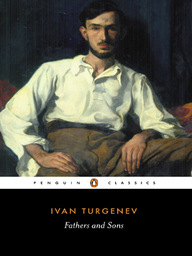
When Arkady Petrovich comes home from college, his father finds his eager, naive son changed almost beyond recognition, for the impressionable Arkady has fallen under the powerful influence of the friend accompanying him. A self-proclaimed nihilist, the ardent young Bazarov shocks Arkady's father by criticizing the landowning way of life and by his outspoken determination to sweep away the traditional values of contemporary Russian society. Turgenev's depiction of the conflict between generations and their ideals stunned readers when Fathers and Sons was first published in 1862. But many could sympathize with Arkady's fascination with the nihilistic hero whose story vividly captures the hopes and regrets of a changing Russia.

